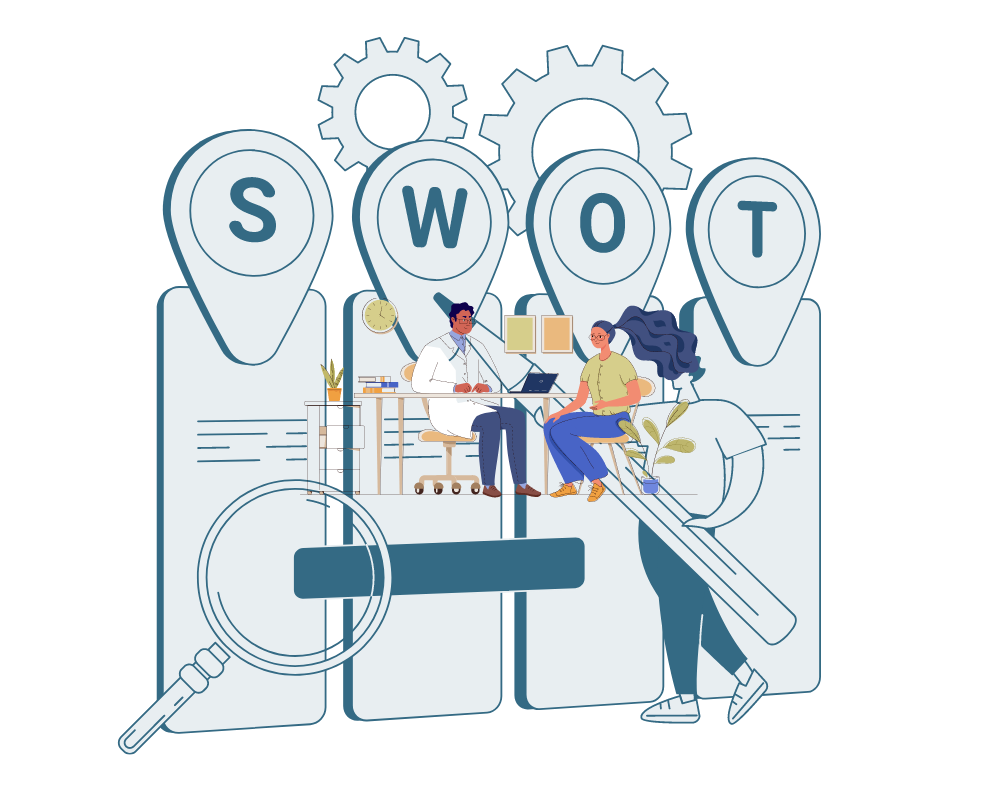Overview
The sales and marketing leaders I speak to always have one thing in common: they’ve worked incredibly hard to get to where they are today, and for the most part, they know what it takes to continue on that path. However, with rapidly shifting, complex B2B buying and selling processes, it’s becoming increasingly tricky for GTM leaders to keep their eyes on the prize. They’re responsible for connecting and integrating data, technology, and their teams, all while meeting their buyers where they are across different channels, preferences, and journeys.
Regardless of talent and experience, we all need unbiased, expert advice when we have so many balls in the air. While the word “consultant” comes with many different connotations (good and bad), every successful leader needs someone with a fresh set of eyes and years of experience to help them grow revenue and market share, improve win rates, and raise capital. Keep reading to find out how a consultant can boost your GTM success, when to hire one, and how to choose the right one for your company.
Break Through Your Biggest Bottlenecks With an Unbiased View
It’s not about whether you should seek outside counsel but when. Consultants also act as a catalyst for change, encouraging employees to take risks and think outside the box. They can show you a more efficient way of doing things and break down unseen siloes sabotaging your growth. A good consultant will also come in with a plan for helping you reach your goals and stick to it, so you don’t have to worry about floundering without direction.
In my 19 years of experience and observation in the corporate world, I’ve concluded that these are the tell-tale signs that it’s time to bring in a consultant for your GTM strategy:
-
- You’re not getting the results you want from your current strategy, but you can’t pinpoint what’s slowing you down
- You’re having trouble getting buy-in from your team
- You’re behind on your goals and don’t know where to start
- Your team is struggling and needs new tools
- Your vision is unclear, and you need help setting priorities
A consultant provides new insights into your business and helps point out areas for improvement. While someone pointing out your areas of weakness and giving advice might not sound mind-blowing, these insights are exactly what move the needle for teams that aren’t seeing incremental growth despite investing the time and resources into their sales and marketing teams.
Maintain Your Momentum and Anticipate Blockers
A solid consultant will work with you as an equal partner, using their expertise to help you capitalize on the market opportunities you set out to capture. Don’t just bring in a consultant when problems arise, but also when your business is rapidly growing since an outside perspective is what keeps things on track.
With growth comes new challenges, so you must continually assess the strengths and weaknesses of your revenue-critical teams at each stage, which can be challenging to do alone. Your consultant should anticipate issues before they arise and pay attention to every aspect of your business, from your revenue model, pricing strategy, sales organization design, and technology stack.
Hire a consultant if you need to do a deep analysis of an area of potential struggle. For example, if you aren’t sure about what is holding you back, consultants can give an unbiased, data-driven view into your blockers and how to solve them most effectively.
Gain a Fresh Perspective and Identify New Opportunities
Sales and marketing leaders are often so close to the day-to-day operations that they can’t see the forest for the trees. It’s difficult for anyone, regardless of talent, to evaluate how their business is doing from a 30,000-foot view. This is where business consultants can help.
Consultants will analyze your current situation or business model and help plan for the future. For example, your consultant should be able to help you identify customer targeting and messaging gaps that prevent scale and stall your growth, such as total addressable market (TAM), buying process maps, and competitive positioning.
To do this, consultants use a variety of tools and methodologies, such as:
-
- SWOT analysis: This tool is used to identify a company’s strengths, weaknesses, opportunities, and threats so you can make decisions about how to improve the business.
- Business process improvement: This is a methodology used to identify areas where a business can improve its efficiency and effectiveness. Business process improvement can involve redesigning processes, implementing new technology, or making other changes.
- Change management: This process helps businesses manage the changes needed to improve the business. Change management includes planning for the changes, implementing the changes, and monitoring the results.

Achieve Scale With Limited Resources
Time and time again, I see sales leaders (the lifeblood of their organization) bogged down by their growth. They’re usually mired in administrative tasks that take them away from critical selling activities. In these situations, a consultant should serve as an extension of the sales leader or be an independent voice that gives them advice on improving their management style.
For example, let’s say you’ve begun a new initiative to increase customer adoption. New projects are a perfect time to bring in a consultant on a project or retainer basis. They can provide a new skill set or fill a critical role throughout sales, marketing, and operations. The key is to use your consultant to supplement the work of the existing team, not replace the team.
While bringing in a consultant can speed things up, I caution you to refrain from using a consultant as a long-term solution for staffing issues. If you bring someone in on an interim basis, you may find that they are only interested in making the project work quickly and then moving on to their next assignment.
Short-term engagements could leave you with a new acquisition or technology implementation without anyone left behind who has the skills or knowledge to support it long-term. This is where internal employees can be an advantage because they are already familiar with your organization and your culture and will be there long after the project is complete.
Hiring Consultants During Spikes in Demand
B2B consultants are often brought on to help during peak times. For example, if you’re experiencing a surge in demand for your product or service, a consultant will help you meet that demand without investing in new employees. Not only will this help you avoid the costs associated with hiring and training, but it also helps your business stay nimble.
For example, you might have account executives and sales engineers who are experienced in selling your services, but you need additional help qualifying leads and booking meetings. SHRM benchmarking data shows an average cost per hire of nearly $4,700, and a new employee can cost an employer three to four times their salary.
With the cost of hiring, you may only want to bring on an entire team once you know exactly what you need. In this case, hiring a consultant might be the best way to handle the peak and document the process for future hiring.
Is Hiring a Consultant Really Worth It?
Yes—it’s worth hiring a consultant with sales and marketing expertise to develop plans that drive consistent results across your teams. No one knows your company, people, or your customers better than you do. You know where you want to go, what it will take to get there, and the risks involved.

You may not be ready to hire a consultant if:
- You don’t have a clear idea of what success looks like in solving your problem or achieving your goal
- You don’t have the right people to take action on what the consultant recommends
The Bottom Line on How Consulting Can Accelerate Revenue Growth
The right consultant will help you increase your efficiency and accelerate your performance. For startups, a consultant can help the founder understand the priorities of the business and the technology required to reach these goals. For large corporations, a consultant can help the organization focus on the problem areas and advise on how to improve those areas.
The goal of any good consultant is to increase the organization’s performance, efficiency, and effectiveness. That said, consultants have a time and a place. Through Centrae, you can bridge the gap between accelerating your own performance while leveraging a 3rd party expert.

